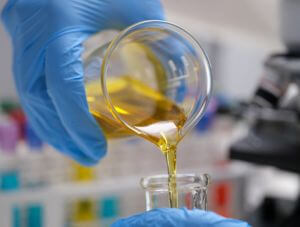
ASTM International’s D86 Standard Test Method for Distillation of Petroleum Products and Liquid Fuels at Atmospheric Pressure (ASTM D86) is a cornerstone in the petroleum industry. It outlines a distillation procedure for measuring the temperature at which different fractions of a sample vaporise - providing crucial information about the boiling range of various petroleum products, including gasoline, diesel fuel, and jet fuel.
Why is ASTM D86 Important?
The boiling range distribution of petroleum products is a fundamental characteristic that impacts multiple critical aspects of their use and handling. It directly influences volatility, where improper levels can either strip away engine lubricants (if too low) or cause premature vapourisation (if too high). This distribution also affects performance by influencing fuel atomisation and the risk of vapour lock in engines. Products with higher boiling ranges are more prone to forming combustion deposits, which can lead to blockages and engine failures. Additionally, understanding the boiling range distribution provides essential insights into chemical composition, enabling safer storage and transport procedures for these potentially volatile materials.
How is the ASTM D86 test procedure carried out?
ASTM D86 covers both manual and automated instruments. Briefly, the sample is distilled under controlled temperature and pressure conditions. The Initial Boiling Point (IBP) of the samples is noted, and data are collected in the interval between the IBP and the end of distillation. Usually, the temperature at specific recovery points (such as when 10%, 50%, or 90% of the liquid has been collected) is measured. However, the percentage of liquid collected at specific temperatures could also be recorded. The data collected provides a boiling range profile for characterising the volatility of the liquid sample.
Figure 1
Schematic of a manual distillation unit using a gas burner (reproduced from ASTM D86-23ae2)

What are the new updates to ASTM D86?
Over the years, ASTM D86 has undergone various revisions and updates to keep pace with changing technologies and industry needs. The most recent revision to ASTM D86, called D86-23e2, includes the addition of Section 7. Reagents, where check standards are listed, in particular Low Range- and High Range Check Standards. These newly added standards, certified to ISO 17034, must be used to verify the temperature measurement system's dynamic response. This verification should be performed annually at minimum, and after any repair or replacement of the temperature measuring system. Table 1 (below) lists the components of the Low Range Check Standards, as well as High Range Check Standards.
Table 1
Components of Low Range Check Standards and High Range Check Standards according to ASTM D86-23ae2
Low Range Check Standard, weight/weight per cent (wt/wt %) | High Range Check Standard (wt/wt %) |
Pentane 15% | Nonane 15% |
Acetone 5% | Undecane 20% |
Hexane 17% | 2,2,4,4,6,8,8-Heptamethyl-nonane (Iso-cetane) 30% |
Isooctane 20% | Hexadecane 25% |
Octane 15% | Nonadecane 10% |
Cyclohexanone 13% | |
Decane 10% | |
Undecane 5% |
LGC Standards: keeping you up to date with ASTM D86
In response to this latest update to ASTM D86, LGC Standards has introduced two new reference standards that are specifically designed to meet the enhanced quality control requirements of the updated method. The dual-range approach of the Distillation Temperature Check Standard - High Range and Distillation Temperature Check Standard - Low Range ensures accurate temperature verification across the full spectrum of distillation testing, with the Low Range Standard covering lower boiling point hydrocarbons and the High Range Standard addressing higher boiling point materials. Together, these new standards help laboratories maintain compliance with the method, while also ensuring the accuracy and reliability of their distillation testing results. What’s more, all of the LGC Standards products listed below can also be used for IP 123, ISO 3405 and other equivalent test methods.
Product Code | Description | Certification | Volume |
Distillation Temperature Check Standard - High Range | ISO 17034 | 250mL | |
Distillation Temperature Check Standard - Low Range | ISO 17034 | 250mL |
Related Products
Product Code | Description | Certification | Volume |
Distillation, Jet Aviation Fuel (Nominal: 158.7 to 268.2°C) | ISO 17034 | 250mL | |
Distillation, Diesel (Nominal: 160.8 to 355°C) | ISO 17034 | 250mL | |
Distillation, Gasoline (Nominal: 32.8 to 173.3°C) | ISO 17034 | 250mL |



